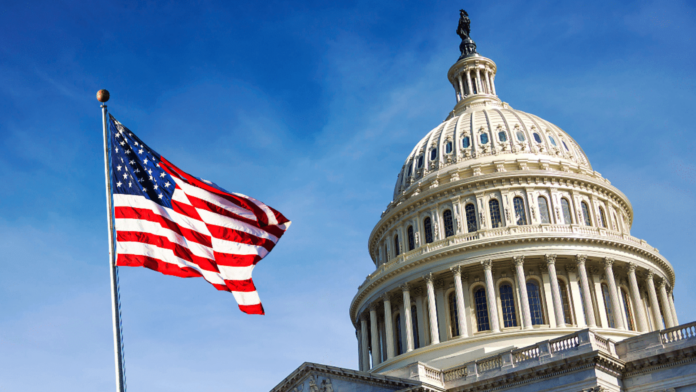In a bold move reflecting the evolving landscape of digital finance, U.S. lawmakers have stepped up to introduce a significant bill in the Senate, aiming to tighten the reins on the misuse of cryptocurrencies. This bipartisan effort, known as The Terrorist Financing Prevention Act of 2023, is geared towards curtailing the financial avenues exploited by terror organizations, encompassing both fiat and digital assets.
A Legislative Leap Against Terror Financing
This bill is more than just a regulatory measure; it’s a clear statement against the shadowy use of financial systems by terror groups. By targeting both traditional finance companies and digital asset firms, the legislation seeks to cast a wide net, ensuring no stone is left unturned in the fight against terror financing.
What stands out in this proposed law is its comprehensive approach. It’s not just about putting a stop to direct funding; it also involves expanding sanctions against foreign corporations that might be indirectly supporting U.S.-designated terror groups through their financial practices. This proactive stance showcases a nuanced understanding of the complex web of financial transactions that can potentially fuel harmful activities.
Striking a Balance Between Security and Innovation
While the bill imposes strict regulations, it also underscores a need for balance. Digital assets, with their innovative potential, have transformed numerous sectors, but this transformation brings with it the responsibility to ensure these advancements don’t become tools for nefarious purposes.
A key provision of the bill requires the President to enforce stringent conditions on U.S. account openings by organizations linked to terror financing. This move isn’t just about prohibition; it’s about diligent monitoring and enforcement. Similarly, the bill proposes to ban transactions involving digital assets between financial institutions and entities identified as partaking in terror financing.
The Debate Over Crypto’s Role in Financing Terrorism
This legislative push comes in the wake of concerns about the use of cryptocurrencies in funding terrorist activities. Recent reports, like the one from the Wall Street Journal citing Hamas’s alleged receipt of $41 million in cryptocurrency, have sparked intense discussions about the role of digital assets in global security.
However, this is a complex issue, and not all viewpoints see eye to eye. Chainalysis, a key player in blockchain analysis, has challenged some of these claims, pointing out that the transparent nature of blockchain technology makes it a less viable option for covert funding activities. This perspective brings a critical dimension to the conversation, highlighting the need for a balanced approach that recognizes both the risks and the inherent strengths of digital assets in promoting transparency.
Looking Forward: A Paradigm Shift in Financial Regulation
As this bill makes its way through the legislative process, it’s a reminder of the delicate balance between fostering innovation and ensuring security. The U.S. Senate’s move to introduce The Terrorist Financing Prevention Act of 2023 is not just about tackling today’s challenges; it’s about setting a precedent for how digital finance can be responsibly regulated in the future.
This legislation, if passed, could mark a turning point in how governments approach the regulation of digital assets. It’s a complex interplay of maintaining financial integrity, supporting technological advancement, and safeguarding global security. As we navigate these uncharted waters, the importance of informed, dynamic, and balanced regulatory frameworks becomes ever more apparent.















